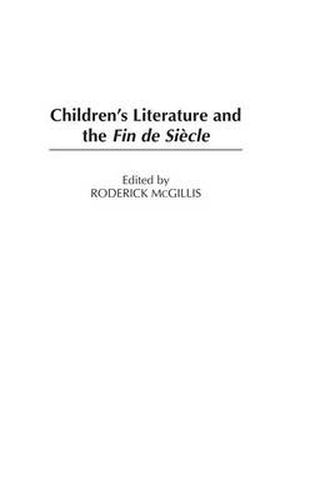Readings Newsletter
Become a Readings Member to make your shopping experience even easier.
Sign in or sign up for free!
You’re not far away from qualifying for FREE standard shipping within Australia
You’ve qualified for FREE standard shipping within Australia
The cart is loading…






Expert contributors examine fin de siecle tensions in 19th- and 20th-century children’s literature from around the world. The close of a century invites both retrospection and prognostication. As a period of transition, it also brings a sense of uncertainty, finality, and apocalypticism. These feelings stem from various events, such as political turmoil, scientific advancements, and social change. As might be expected, literature reflects such changes and the feelings they engender. But perhaps more surprisingly, children’s literature is especially sensitive to such matters, and fiction for children often struggles with dark and unpleasant issues. This book examines fin de siecle tensions in 19th- and 20th-century children’s literature from around the world. Each chapter is written by an expert contributor, and the volume ranges over a disparate variety of topics. These include poetry, series books, pacifist fiction, gender issues, religion and literature, ecocriticism, minority experiences, humor and the Holocaust, fantasy and science fiction, and computer culture. In exploring these issues in relation to children’s literature, the contributors reveal the shifting nature of our values and the world in which we live. Global in nature, the chapters look at children’s literature from such places as Germany, Holland, the United Kingdom, Australia, and the United States.
$9.00 standard shipping within Australia
FREE standard shipping within Australia for orders over $100.00
Express & International shipping calculated at checkout
Expert contributors examine fin de siecle tensions in 19th- and 20th-century children’s literature from around the world. The close of a century invites both retrospection and prognostication. As a period of transition, it also brings a sense of uncertainty, finality, and apocalypticism. These feelings stem from various events, such as political turmoil, scientific advancements, and social change. As might be expected, literature reflects such changes and the feelings they engender. But perhaps more surprisingly, children’s literature is especially sensitive to such matters, and fiction for children often struggles with dark and unpleasant issues. This book examines fin de siecle tensions in 19th- and 20th-century children’s literature from around the world. Each chapter is written by an expert contributor, and the volume ranges over a disparate variety of topics. These include poetry, series books, pacifist fiction, gender issues, religion and literature, ecocriticism, minority experiences, humor and the Holocaust, fantasy and science fiction, and computer culture. In exploring these issues in relation to children’s literature, the contributors reveal the shifting nature of our values and the world in which we live. Global in nature, the chapters look at children’s literature from such places as Germany, Holland, the United Kingdom, Australia, and the United States.